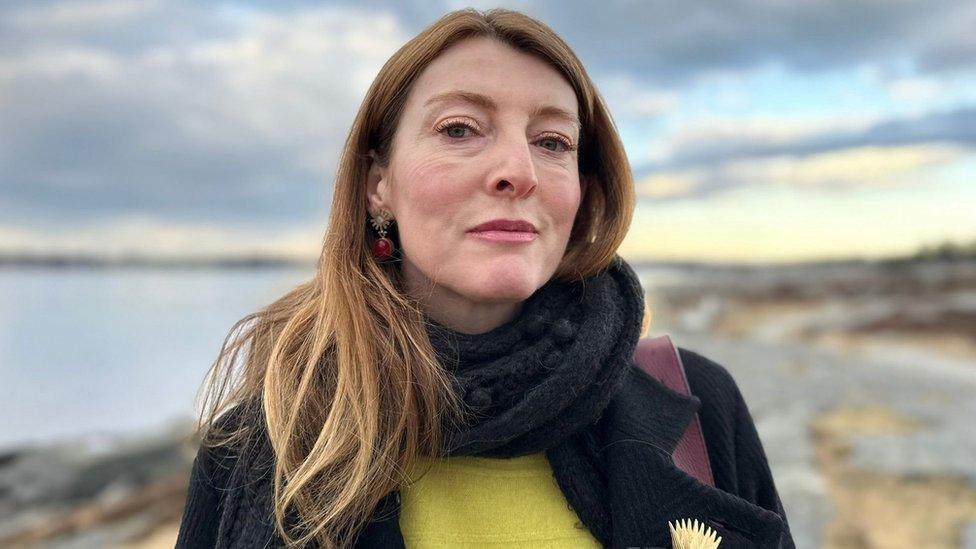Bereaved welcome earlier rig disaster compensation
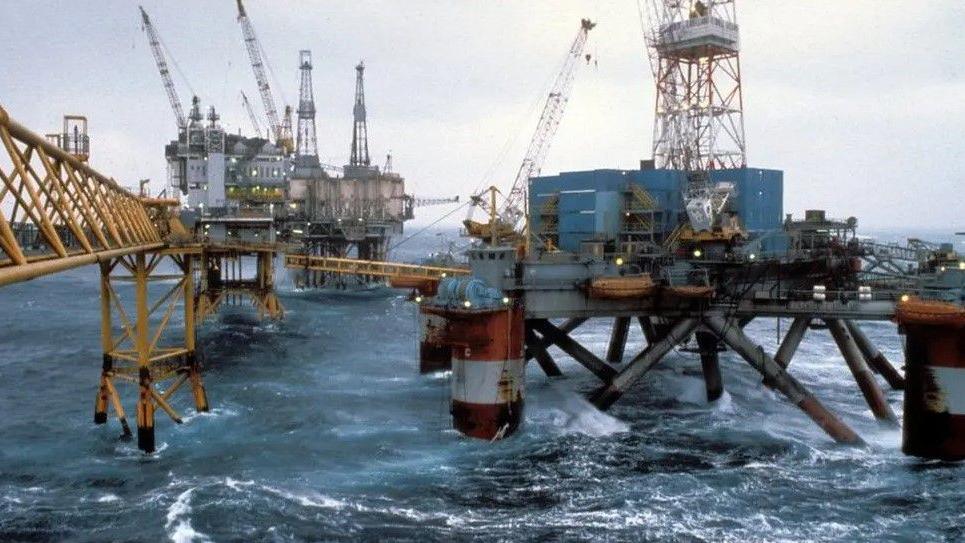
The Alexander Kielland platform (on the right) was being used as accommodation for workers from a nearby oil rig
- Published
British families of those killed in a Norwegian oil rig disaster have welcomed a decision to set up a compensation scheme earlier than planned saying people are dying before getting payments.
More than 120 men died, including 22 Brits, when the Alexander Kielland floating platform capsized in the North Sea oil fields on 27 March 1980.
In June, Norway's parliament agreed for the relatives and survivors to get compensation from the state, with another vote now confirming it should begin by March 2026, a year ahead of the original plan.
Laura Fleming from Durham, whose dad Michael was one of six victims from Cleator Moor, in Cumbria, said it was about getting recognition for failings.
The Kielland Network, a group set up by survivors and families of those killed of which Ms Fleming is a member, said since the June vote, two survivors and four widows had died.
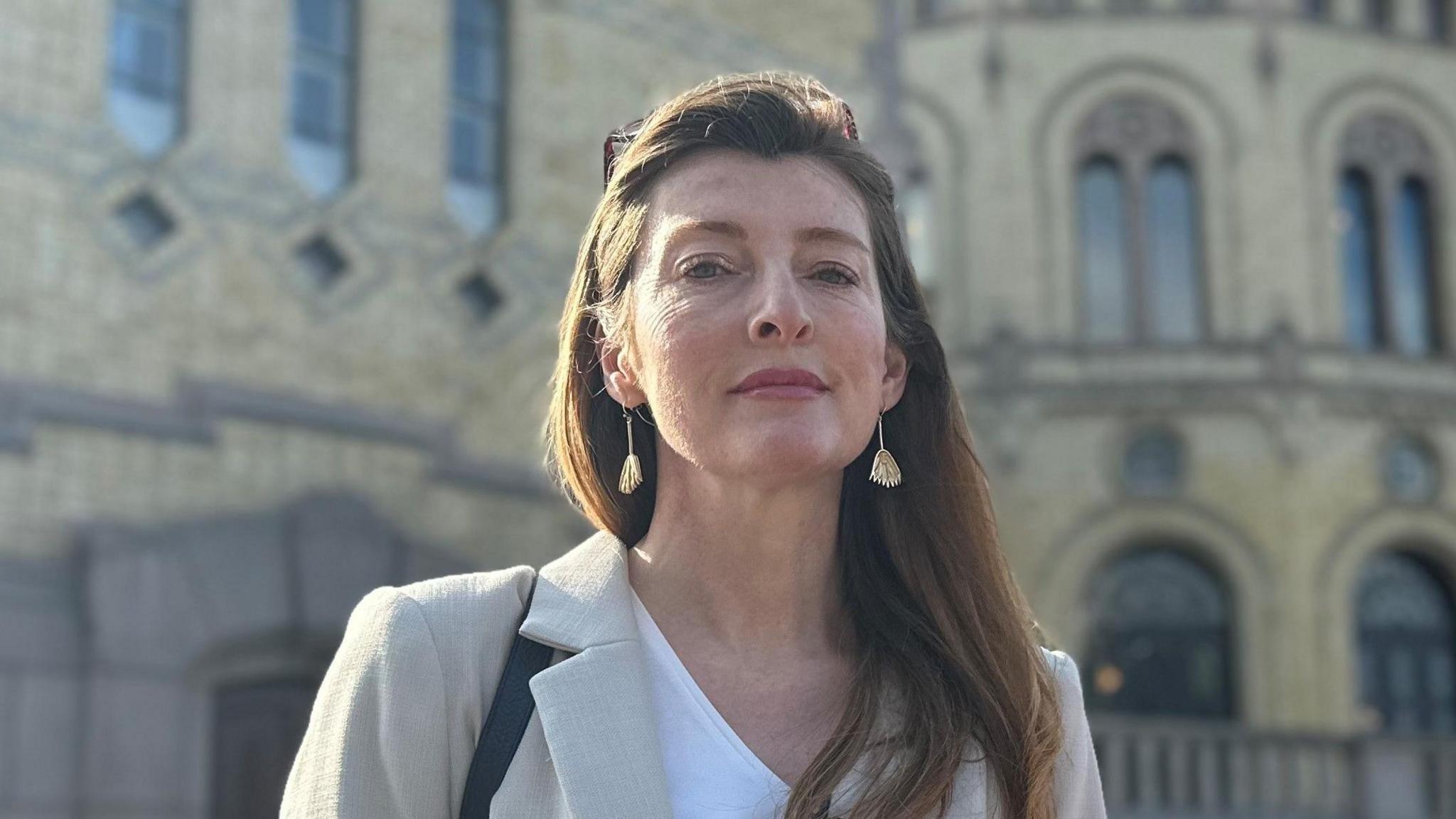
Laura Fleming lost her father Michael in the Kielland disaster
A Norwegian lawyer acting for the group said: "The victims are starting to get old.
"Therefore, it is strongly overdue that society makes amends for those who sacrificed their lives and health for the country's oil wealth."
He said compensation should be paid to each of the disaster's 89 survivors or, if they have died, their relatives, and the families of the 123 men killed.
The vote in June was opposed by the Labour-led government, but passed through the Norwegian house, the Storting, by 53 votes to 51.
Representatives of the network said at a recent meeting with the government, they were told the compensation scheme would not be set up until 2027.
Opposition parties put forward a motion for it to be in place for March 2026, with the Storting agreeing by 69 votes to 32 on Tuesday, external.
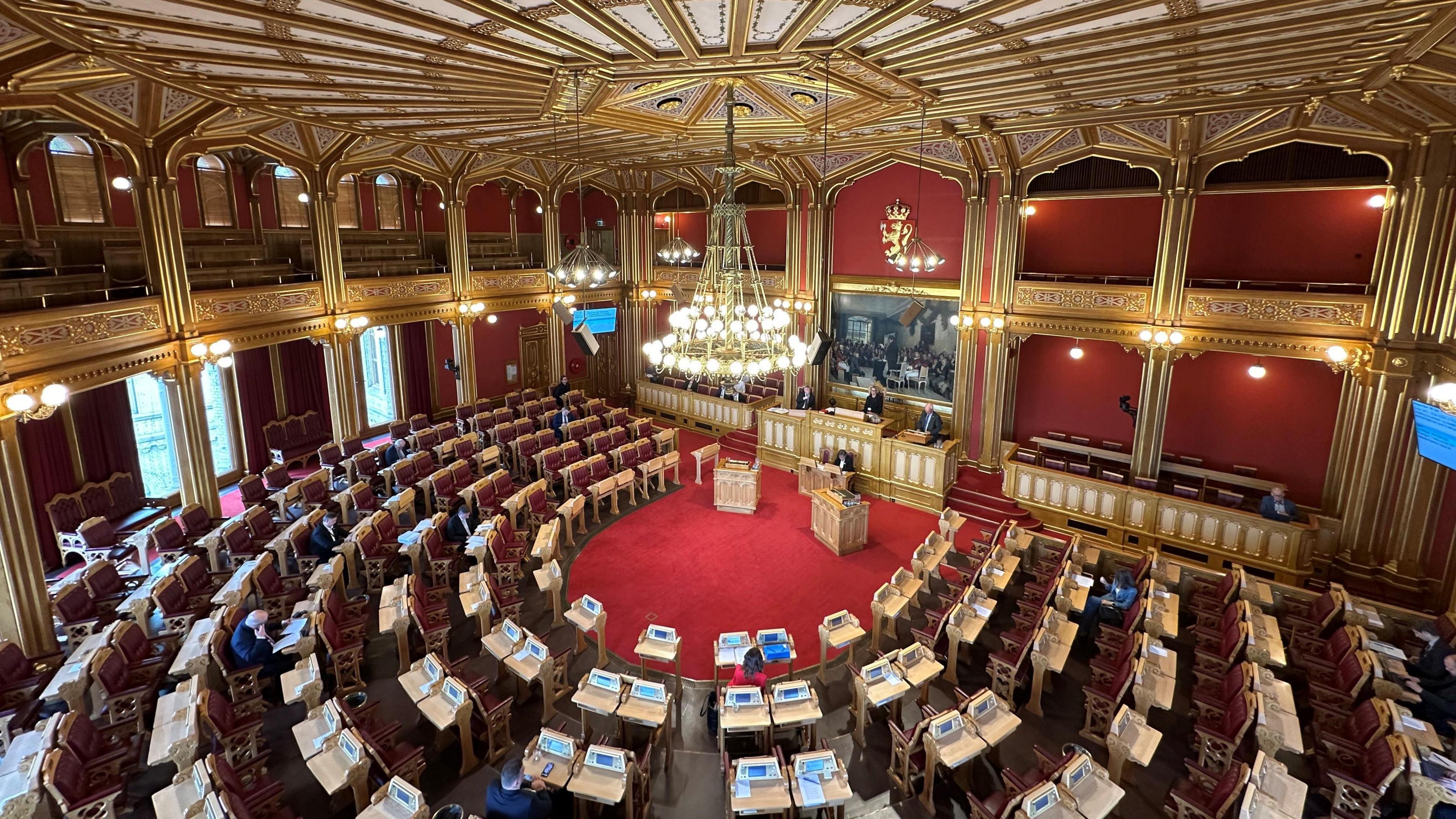
The Norwegian parliament has voted for the compensation scheme to be set up by next year
Ms Fleming said the families still felt a sense of great injustice as nobody had ever been prosecuted over the disaster.
"However," she added, "the fact the majority of the government have agreed to pay compensation shows that the majority of MPs can see there is a charge to be answered and therefore compensated for."
Debbie Clark from Great Yarmouth, who lost her father Ted Laxon said, it had "never been about the money" but compensation after "all this time" was an "admission of mistreatment of all involved".
Ms Laxon also said getting the compensation would be honouring a promise to her mother who died last year "heartbroken to the end".
The Norwegian government had previously apologised and a review found there had been failings in the way families were treated, but a fresh inquiry into the disaster which had been sought by campaigners was ruled out.
Follow BBC North East on X, external and Facebook, external and BBC Cumbria on X, external and Facebook, external and both on Nextdoor and Instagram, external.
Get in touch
Do you have a story suggestion for BBC North East & Cumbria?
Related topics
- Published6 June
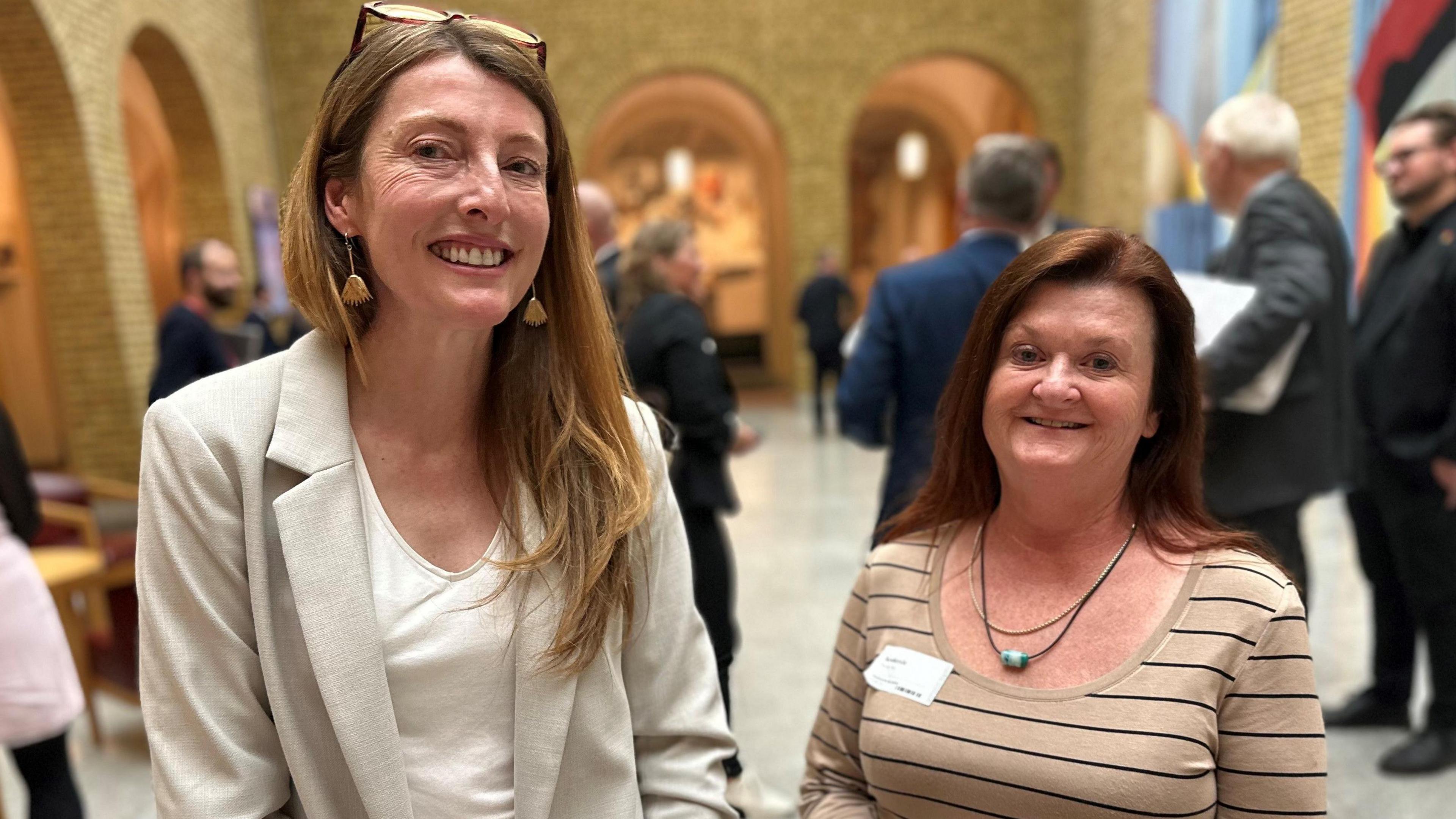
- Published23 January
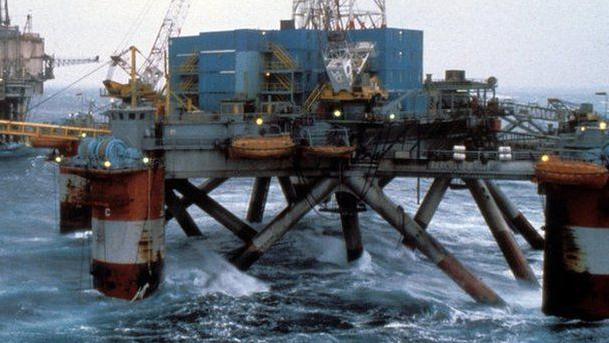
- Published27 March 2024
